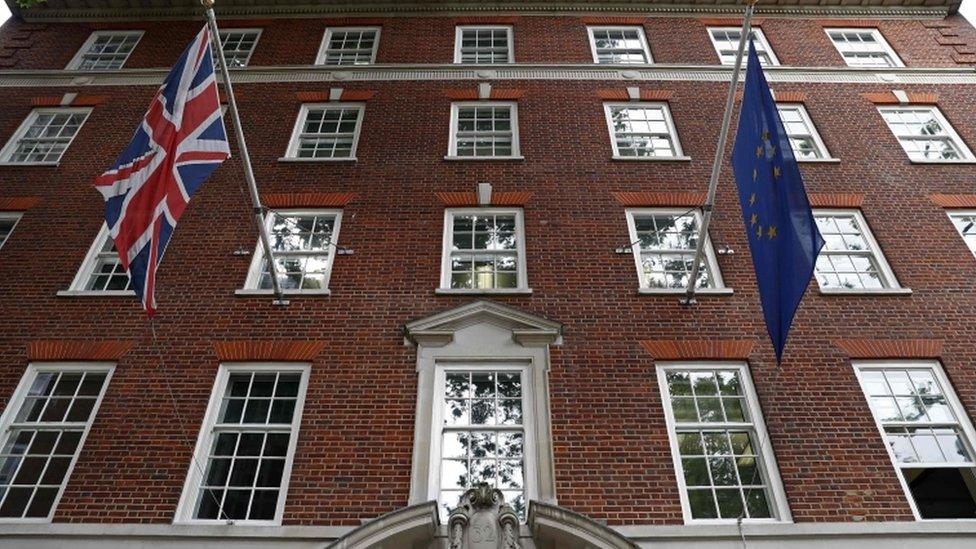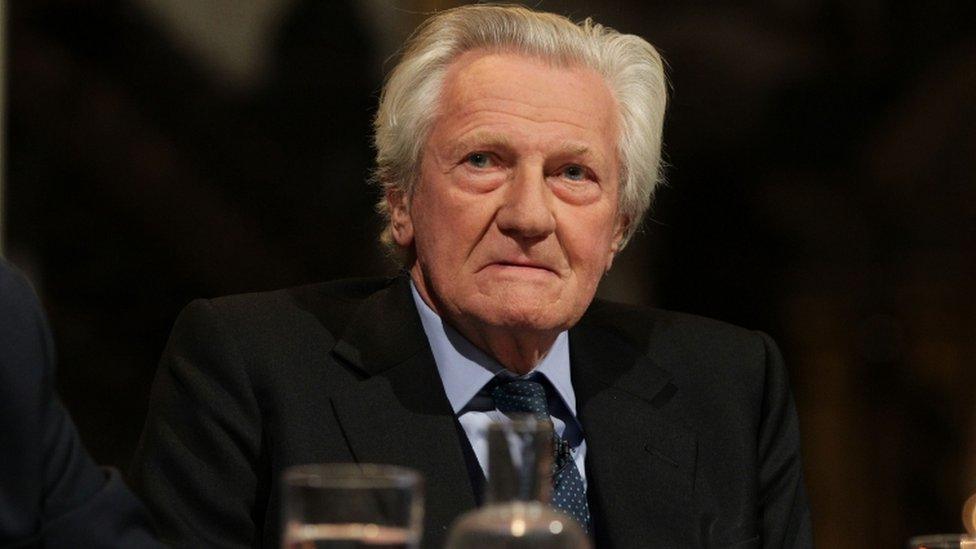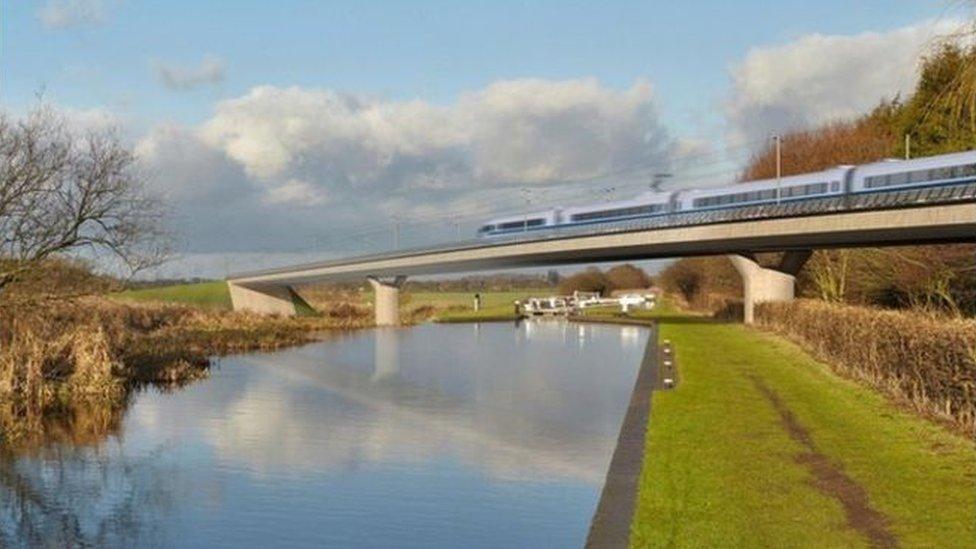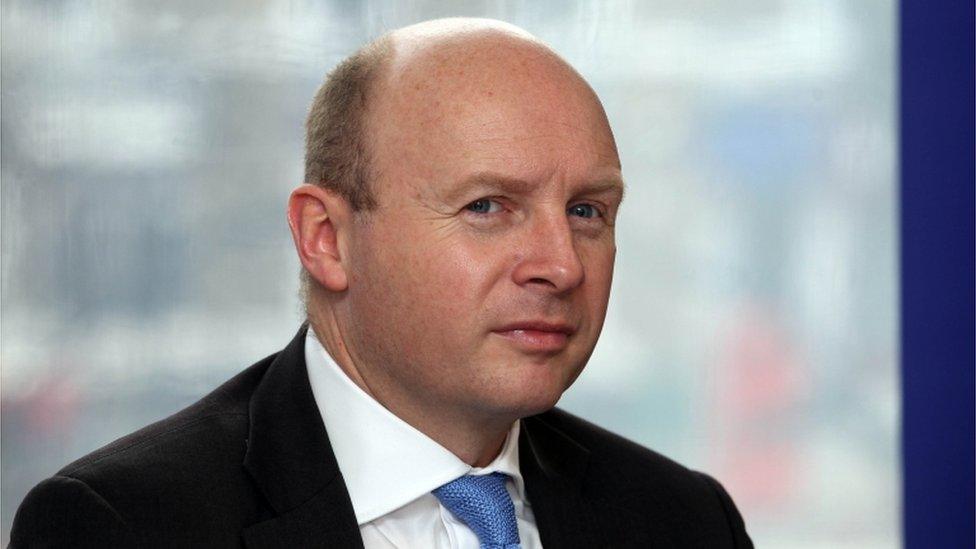Midlands business leaders expect the unexpected
- Published

Brexit: Will it be the disaster Lord Heseltine thinks? Or will Britain become more attractive to foreign investors
"If you want to hear the sound of God laughing, just tell Him about your five-year plan."
Those were the words with which I opened a conference of nearly 400 business leaders in the impressive Vox Conference Centre at the new Resorts World complex adjoining the National Exhibition Centre.
That testimony to the glorious uncertainty of life has been credited to the one-time doyen of the London Business School, Professor Charles Handy. But I was told recently that it was more likely to have been coined by no less a philosopher of our times than Ken Dodd of Knotty Ash.
Whatever its origin, the statement certainly set the mood for the first big get together of the captains of industry in the economic heart of Britain since that watershed vote for Britain's exit from the European Union.
The event had been called to mark the launch of the West Midlands Combined Authority, complete with economic engine, to drive the government's "Devolution Revolution".

Lord Heseltine: Helping the West Midlands with its Develoution Reveloution
My role was that of the impartial chairman. Having had any opinions of my own surgically removed when I joined the BBC, I was neither for nor against either the combined authority or Brexit, even though they are both now faits accomplis, if I am still allowed to use that expression.
The star attraction of the day was the man who has championed the cause of regional empowerment for more than 30 years. The Conservative former deputy prime minister Lord Heseltine has been tireless in his efforts to devolve political and spending powers from Whitehall to local decision-makers.
So the launch of the £8bn, 30-year project, including the creation of 500,000 new jobs in the first 15 years, represents what he told the conference was "the culmination of my life".
So why was he so obviously less than overjoyed on what should have been his crowing moment?
"Because", he told us, "Britain's exit from the European Union has cast a very dark cloud. It's a disaster."

HS2: The ONS thinks the first phase, between London and Birmingham, could be delayed, others think the auditors are just being cautious
Not exactly the celebratory mood many had expected from the conference before the referendum result.
So it fell to Mark Rogers, chief executive of Birmingham City Council and returning officer in the biggest of Britain's individual counts last week, admirably to improvise a response at the shortest possible notice which was clearly intended, in the words of the old song, to "Accentuate the positive".
While Britain was in something of a power vacuum there was an open opportunity for the combined authority to help fill it with its plans for economic growth to benefit the Midlands and the country as a whole.
Dr Colin Clinton, a senior member of the governments regional inward investment arm, UKTI Rio, said he had been told by potential Chinese investors that opportunities here may even become even more attractive because they would be cheaper!
So the mood was not entirely downbeat when I mixed and mingled with the men and women at the sharp end of economic decision-making during the lunch and coffee breaks.

Who said it best: William Shakespeare or Ken Dodd of Knotty Ash
Their mood was, above all, uncertain. And as we so are often reminded "business hates uncertainty".
But I did detect genuine anxiety about HS2.
So many of the WMCA's growth ambitions rest on the arrival of the first phase of HS2 between Birmingham and London in ten years' time, followed by the northern "Y"-shaped links to Manchester and Leeds.
Only that morning the National Audit Office warned that the timetable for the project was "unrealistic" and that it faced serious cost pressures. Labour's Birmingham Hodge Hill MP, the former chief secretary Liam Byrne even went so far as to suggest the entire project was hanging in the balance.
That set me up for the easiest of one-liners from the conference platform: "He should know about no money left".

Former chief secretary Liam Byrne worries the HS2 project may be hanging in the balance
(Sorry Liam!)
The boss of Birmingham Airport Paul Kehoe pointed out that HS2 was only 1% adrift of its budget. And Birmingham City Council's Labour leader John Clancy noted that the National Audit Office may merely be reflecting the inherent caution for which auditors are renowned.
As we neared the end I wondered how to sum up the uncertainty and ambiguity of a day which had been designed to set out our long-term prospects but which had instead been impaled on the hooks of real and presents dangers.
Should I perhaps turn to astrology for some inspiration as to what this uncertain future might hold?
I finished by recalling the words of a local lad who hailed originally from one of the combined authority's "non-constituent" or "associate" local authority areas, Stratford-upon-Avon: "It is not in our stars to hold our destiny, but in ourselves."